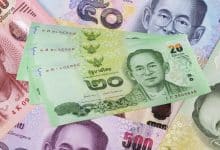Baht to the future: Finance Ministry and BoT tackle currency surge

The Finance Ministry and the Bank of Thailand (BoT) are set to convene next week to address the strengthening baht and the nation’s inflation target amidst governmental pressure for interest rate reductions.
Deputy Prime Minister and Finance Minister Pichai Chunhavajira announced plans to meet with BoT Governor Sethaput Suthiwartnarueput to discuss the baht’s appreciation and related economic concerns. Observers anticipate that an interest rate cut will be a key topic of discussion.
The government has been urging the central bank to reassess its interest rate policy and lower the benchmark rate to stimulate economic growth. Former Prime Minister Srettha Thavisin previously highlighted that the current rate of 2.5%, a decade-high, is detrimental to the public and could worsen the nation’s already high household debt.
A potential revision of the 1 to 3% inflation target range, established in 2020, could increase the likelihood of a rate cut. Inflation in August was recorded at 0.35% year-on-year, marking the fifth consecutive month of modest increases, with the full-year rate now projected to average 0.8%.
Commerce Minister Pichai Naripthaphan reiterated his stance yesterday, calling for the BoT to lower interest rates. He emphasised the central bank’s role in supporting governmental efforts to tackle economic issues.
“Now is the time to cut interest rates. Even though the central bank insists on independence in its decision-making, it must now give a helping hand [in tackling economic problems].”
Thai baht
Prime Minister Paetongtarn Shinawatra also stressed the need for collaboration between the government and the BoT on rate cuts.
“We have to sit down for talks. Otherwise, the issue will affect the people.”
The Thai Chamber of Commerce (TCC) and the Board of Trade of Thailand, along with private sector associations, have previously urged the BoT’s Monetary Policy Committee (MPC) to consider rate cuts to mitigate the baht’s rapid appreciation against the dollar.
Poj Aramwattananon, TCC Vice-Chairman, noted that the baht has strengthened by 8% to 10% over the past three months, inflating the cost of Thai goods and services, which could dampen tourists’ spending on shopping and accommodation. He added that the baht’s appreciation has also increased production costs for the private sector.
Kasikorn Research Centre warned that if the baht strengthens by an average of 1% annually, exporters’ income could decrease by nearly 100 billion baht (US$3 billion) per year, equivalent to 0.5% of GDP.
The baht’s appreciation follows the US dollar’s depreciation, which occurred after the US Federal Reserve reduced its policy rate by 50 basis points last week to combat inflation. Despite this significant cut, Krungthai Global Markets, the research arm of Bank of Ayudhya (Krungsri), predicts that the MPC will maintain the policy rate at 2.5% at its upcoming meeting on October 16, reported Bangkok Post.
Additionally, the Cabinet has approved a budget allocation exceeding 23.17 billion baht (US$708 million) for the second and third phases of a three-year debt moratorium for farmers borrowing from the Bank for Agriculture and Agricultural Cooperatives.
The second phase will run from October 1 until September 30 next year, while the third phase will extend from October 1 next year to September 30, 2026.
Latest Thailand News
Follow The Thaiger on Google News:


























